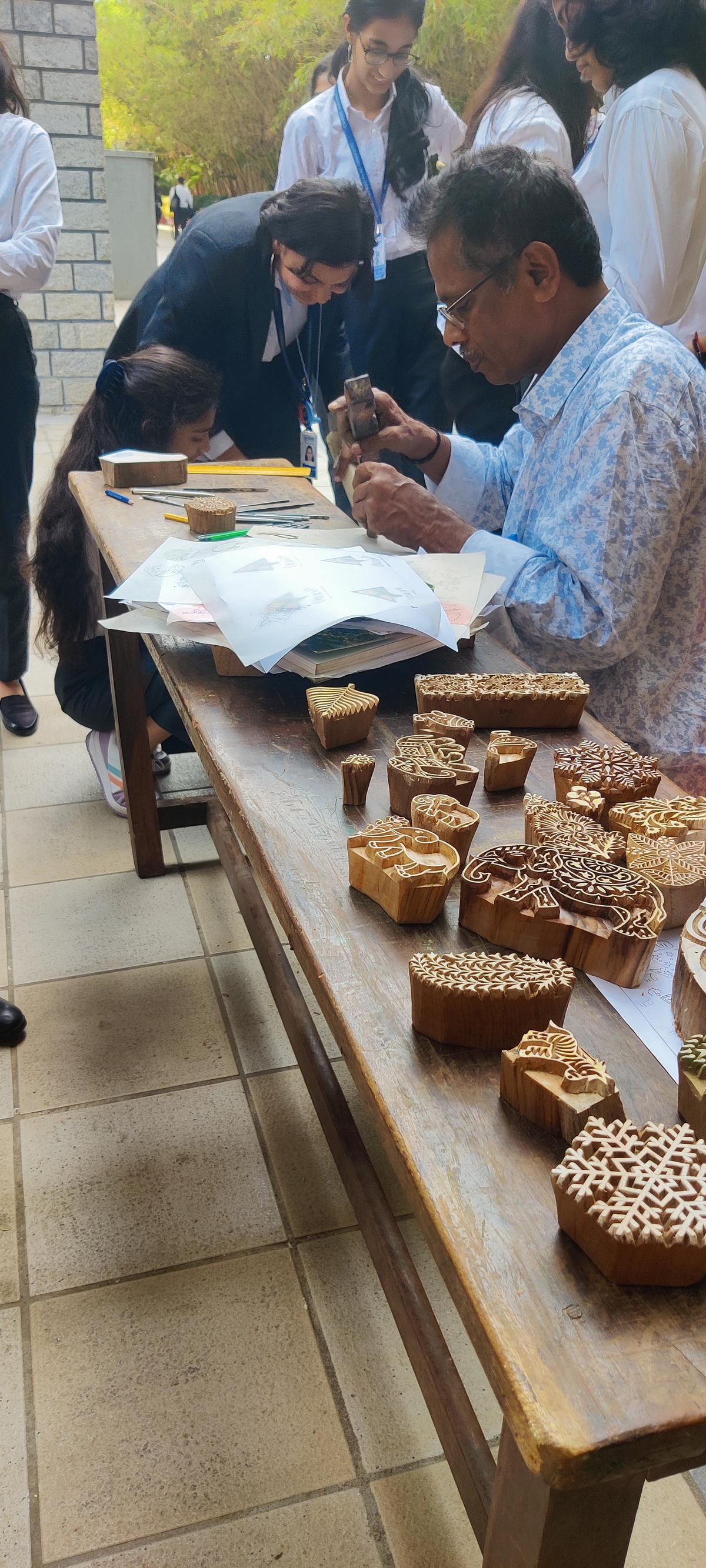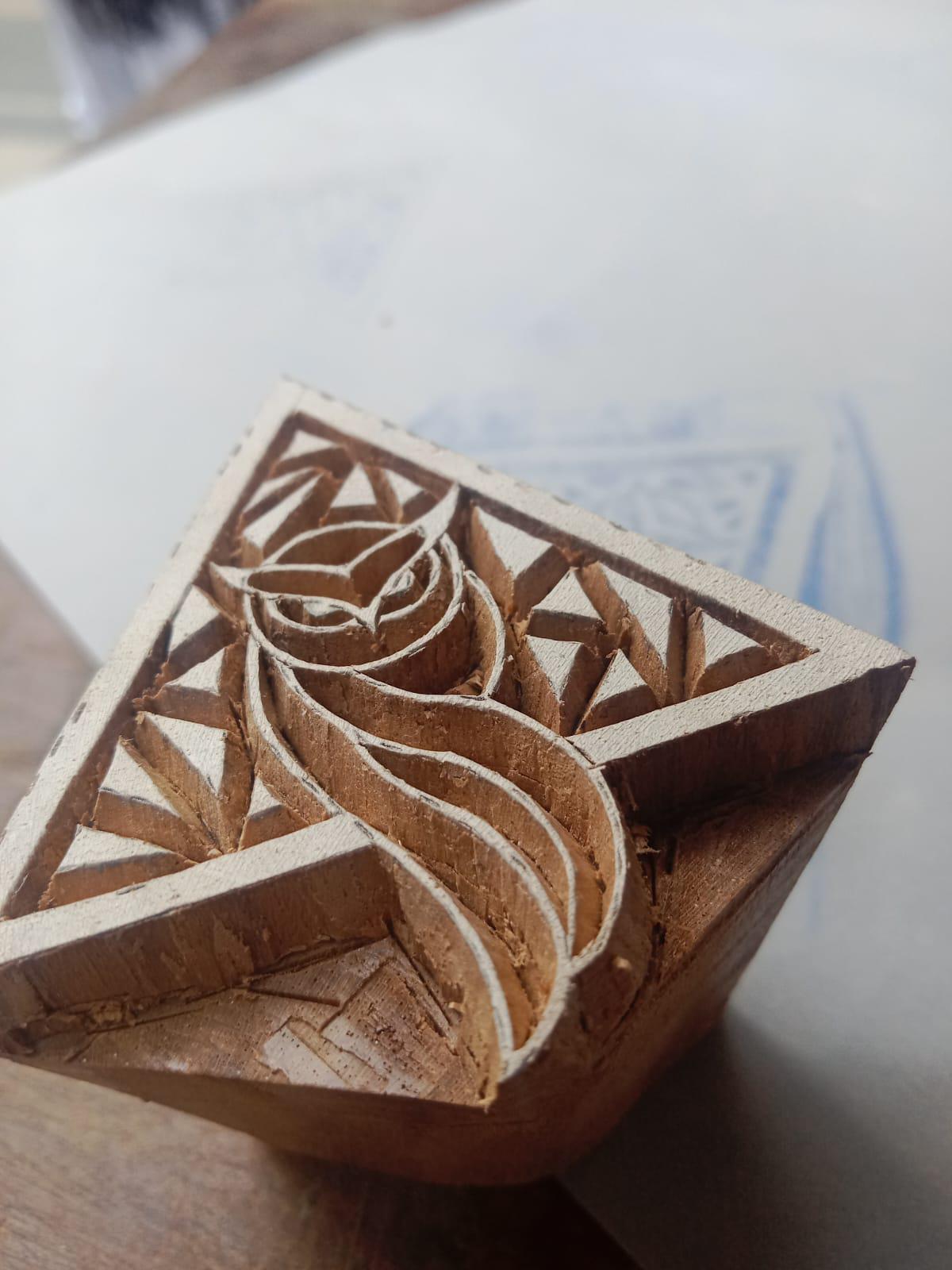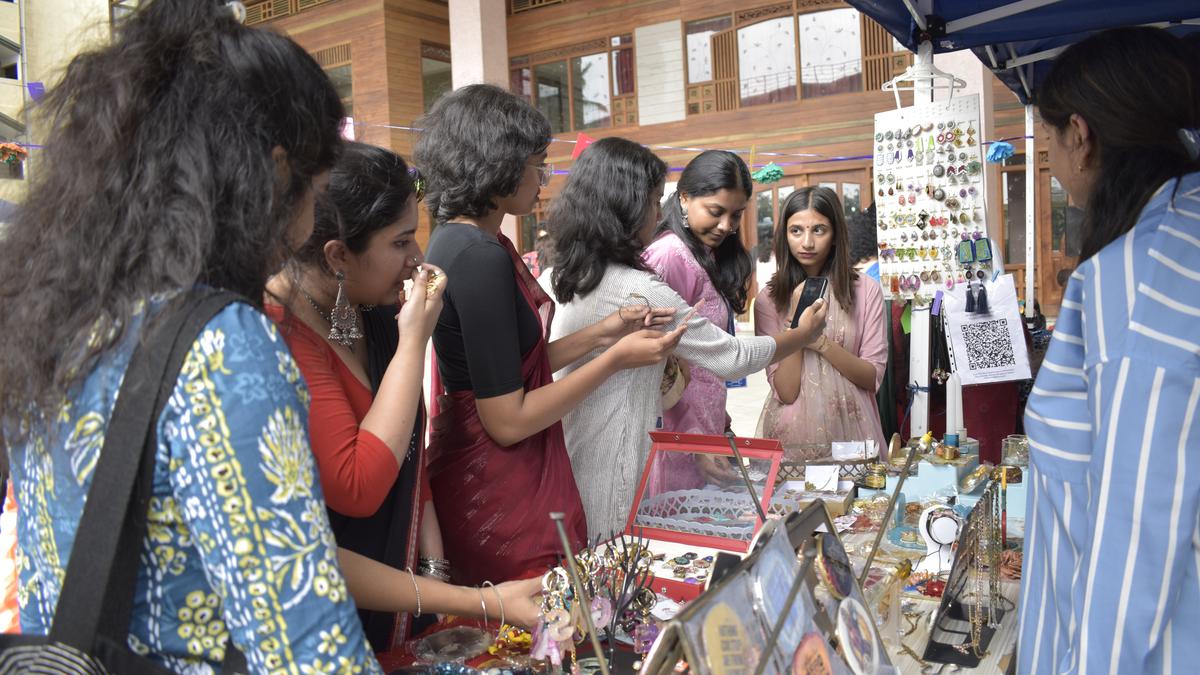Visitors checking out different products at the artisans’ mela, Hazaar Bazaar, held at Christ university, Bannerghatta Road campus, Bengaluru, from October 4 to 7.
| Photo Credit: Special Arrangement
Small sustainable businesses from Bengaluru got an opportunity to showcase and sell their products at the Hazaar Bazaar fair that was held at the Christ (deemed to be University), Bannerghatta Road, Bengaluru, as part of “Jharokha – A Window to a Sustainable World” event, organised by Liberati, the student association of the Department of Liberal Arts.
With sustainability at its core, the event encompassed a series of workshops, competitions, and exhibitions of arts, which exposed the participants to a range of cultural perspectives and developed an appreciation for Indian heritage.
Tengin (manufacturing coconut-based products), Masmara (handcrafting banana fibre products), and Bas Ek Pal – A Moment of Happiness (creating Batik and Rajasthani handicrafts) were among those who set up stalls, at the event held from October 4 to 7.
These businesses employ local artisans to boost their income and increase their living standards. Some of them also work towards uplifting the farming community and optimising the purchase of locally sourced and produced products, according to a release from the university.
Ms. Sasmita brought along handloom products that were made by local artisans, and Ms. Mukta Jaiswal brought to the table resin arts and crafts. Sambhav Foundation set up two stalls, one for the sale of handmade jute products and the other where their trained beauticians offered their services.

Sriram, a resource person, teaching students the art of carving blocks for block printing of textiles at the artisans’ mela, Hazaar Bazaar, held at Christ university, Bannerghatta Road, Bengaluru, from October 4 to 7.
| Photo Credit:
Special Arrangement
Pallavi Singhi from Bas Ek Pal, selling Batik and Rajasthani handcrafted products, said, “Hazaar Bazaar was an excellent and a new opportunity to interact with the college crowd that helped promote the artisans to a younger generation.”
“All stalls were successful, with the mela engaging over 1,000 visitors and were able to earn an average of ₹7,000 to ₹9,000,” said the press release.
Dr. Prerana Srimaal, the Head of the Department of Liberal Arts, said, “To move towards a sustainable world, we must empower ourselves, mobilise our youth, and build capacities that enable us to transform our living systems.”
Dr. Embassy Lawbei, coordinator of Liberati, said, “The motivation behind this event is to provide an opportunity to our students to witness that ‘sustainability’ is not just a popular concept, but an actionable idea.”

The Liberati logo that was carved during the workshop held during the artisans’ mela, Hazaar Bazaar, at Christ University, Bannerghatta Road, Bengaluru, from October 4 to 7.
| Photo Credit:
Special Arrangement
Jharokha also had three workshops for students. At Thread it, students got to learn the art of Zardozi and Aari embroidery from the experts at Nichi Embroidery, an institute that employs and trains women for their livelihood. The students got hands-on experience in the art of embroidery to create their own unique pieces.
At the Block by Block workshop, conducted by Mr. Sriram, taught the students the art of carving blocks for block printing of textiles. With 40 years of experience, his two-hour session focused on designing and carving blocks.
Re-Culture, was a recycling crafts workshop’ conducted by Vishwanath Mallabadi, wherein he introduced the students to the art of sustainable upcycling by creating jewellery and murals from e-waste.



.jpg)

